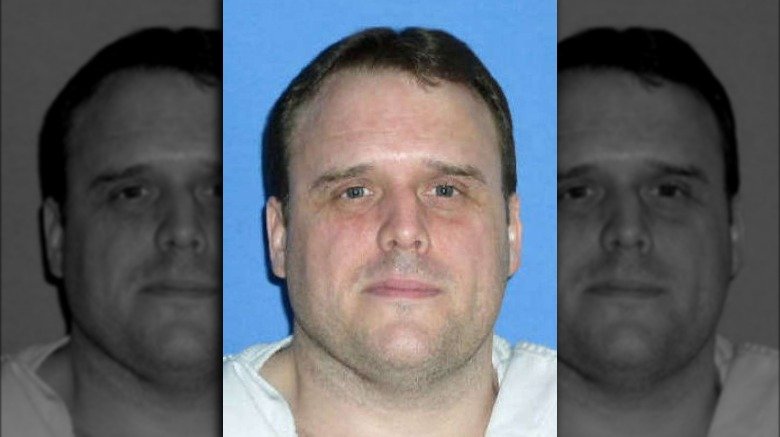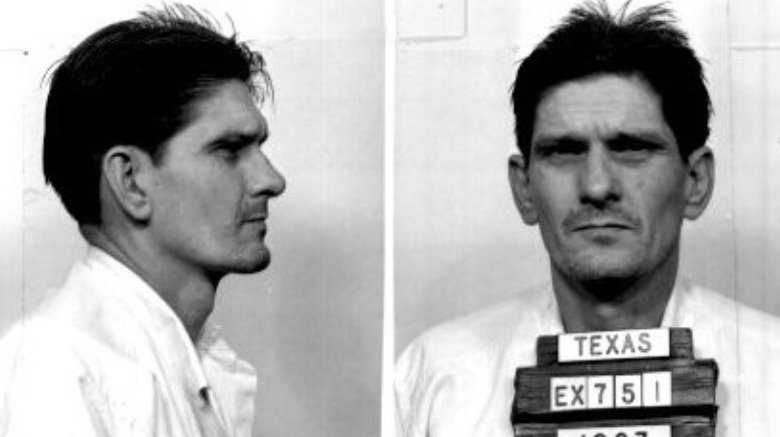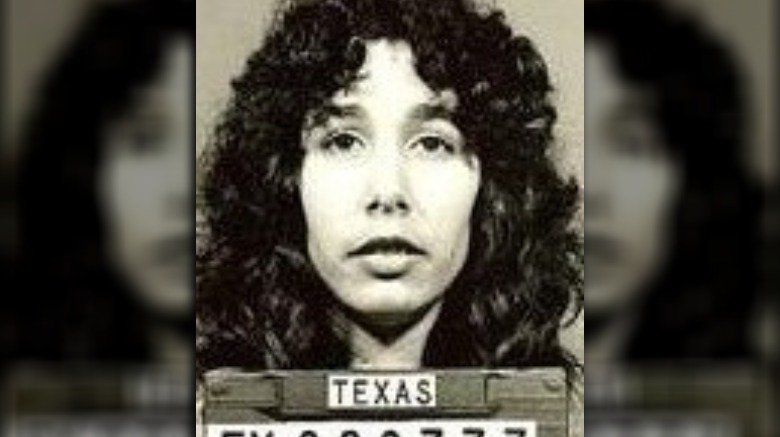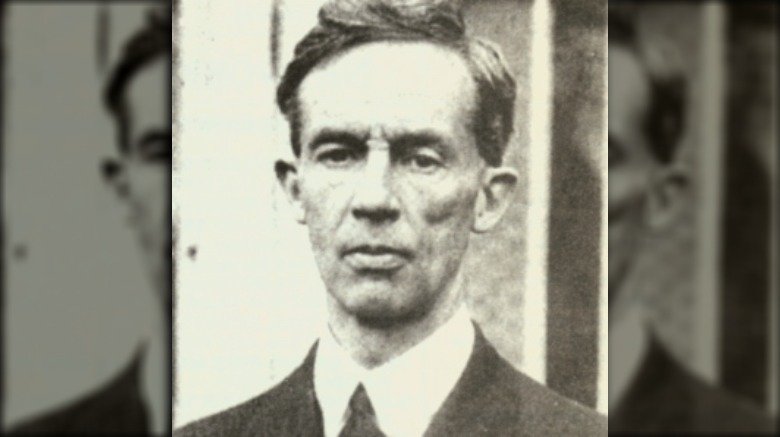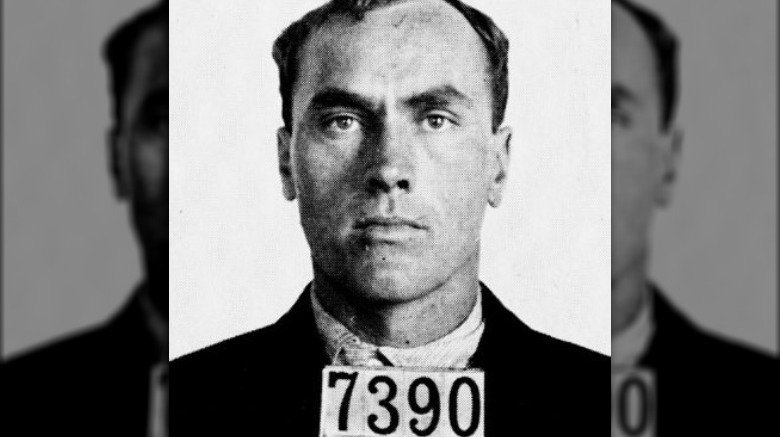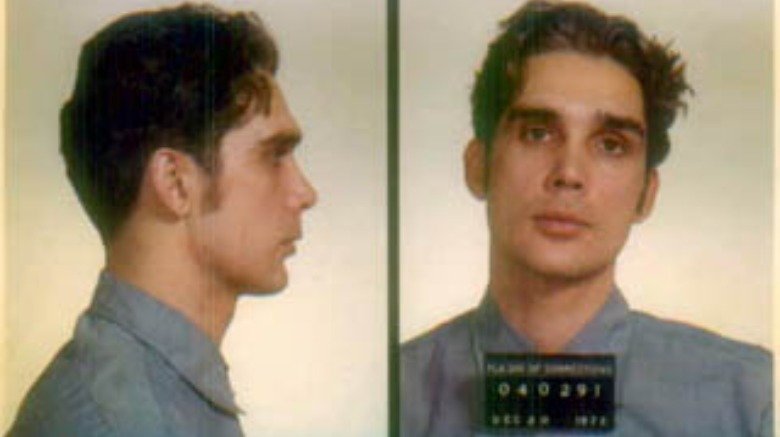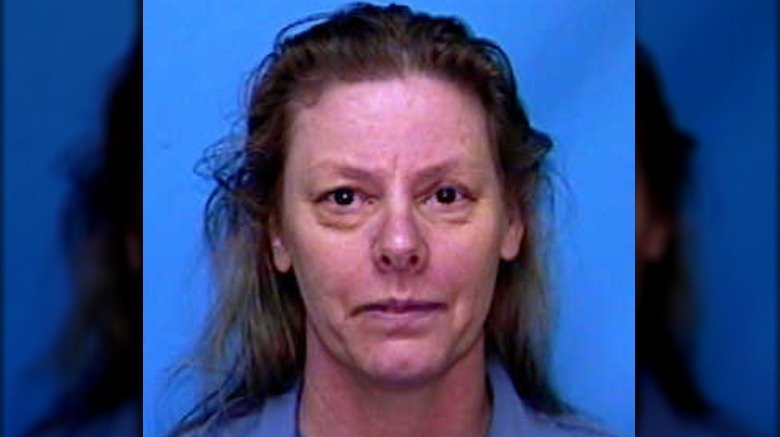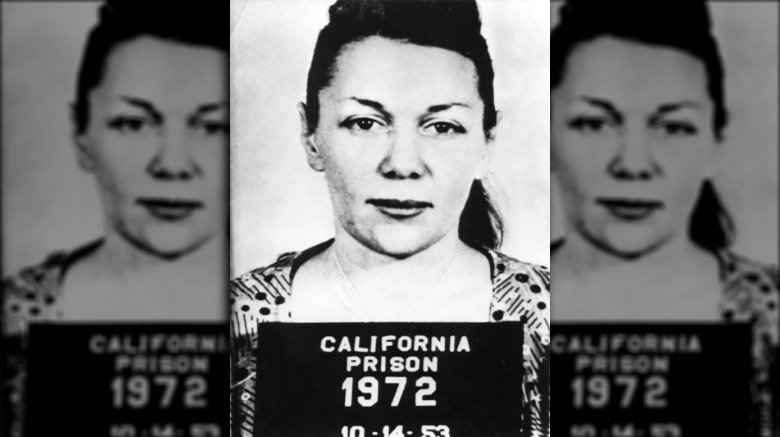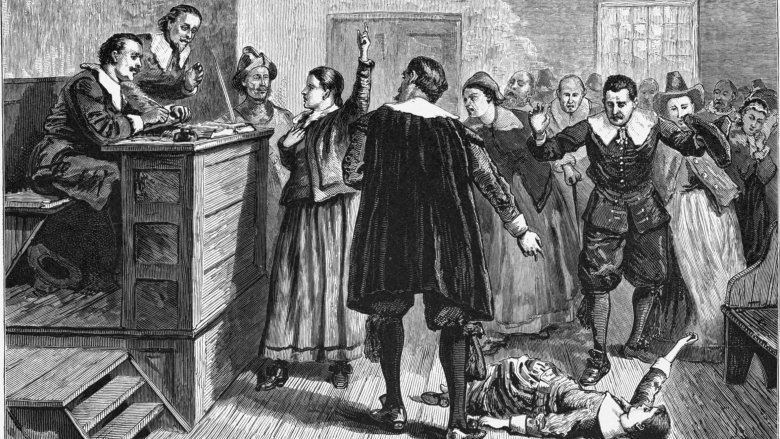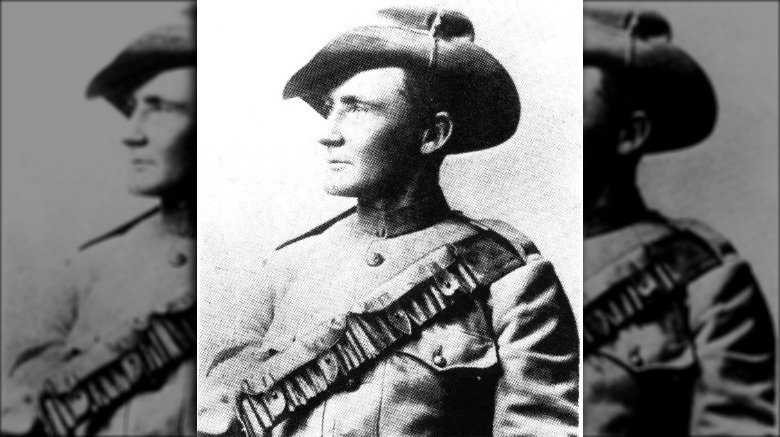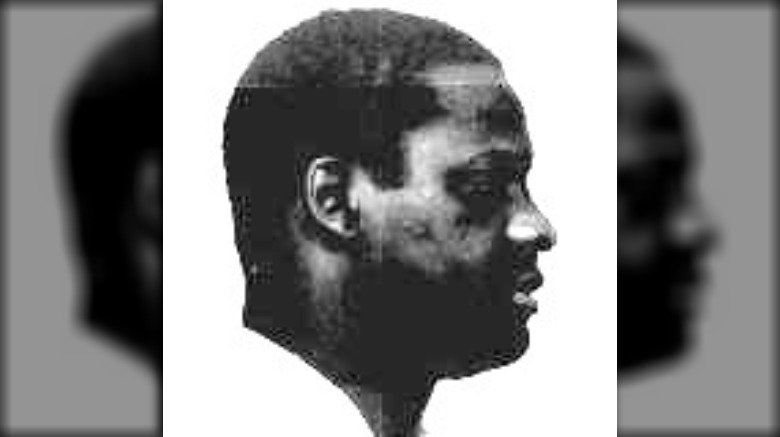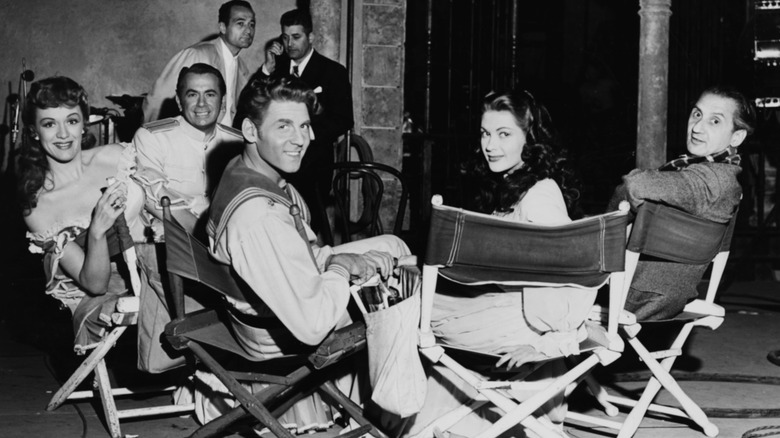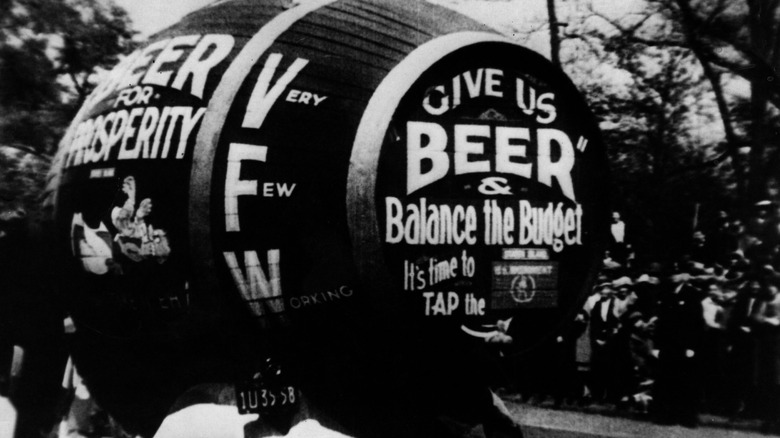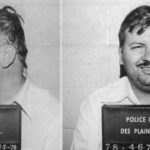
The Most Haunting Last Words Of Criminals
There’s something morbidly fascinating about a person’s last words. Sure, statistically, there’s a pretty excellent chance most humans’ final utterance will be something to the tune of “gosh, this hurts,” but when the stars line up, they can feel like the summation of a person’s life, a final definitive stanza in the poem that is a person’s existence.
By definition, a death row prisoner has a better idea of when their time will come than the rest of us. It’s chilling to consider, but they, more than almost anyone, know when they’ll make their final statement on Earth. Last remarks are usually prepared, often prayers for forgiveness or apologies to the people they’ve harmed. Some go with gallows humor. Others give us a glimpse into the mental illness that may have led them to their fate to begin with. Whatever the case, the public is drawn to their terminal words, looking for understanding, or closure, or just macabre entertainment. Here, we’ll explore the lives, crimes, and haunting last words of criminals. Be forewarned, things are going to get dark.
Patrick Bryan Knight's last joke
On August 26th, 1991, Walter and Mary Ann Werner returned to their Texas home after work to find it occupied by an irate neighbor, Patrick Knight, who had burgled the house with the help of Robert Bradfield. Knight and Bradfield trapped the Werners in the basement of the house and, the next day, bound and gagged them and drove them into the wilderness where Knight shot them both in the back of the head.
A police investigation led to a confession from Knight, during which he showed the authorities where the Werners’ bodies were located. While his partner in crime was sentenced to concurrent life sentences, Knight was put on death row, where he remained for 14 years. Leading up to his execution, NBC News reports Knight became the subject of media attention when he announced his final words would be a joke, and opened the proverbial floor to submissions.
In the end, he seemed to change his mind. He opened his final statement with “I said I was going to tell a joke. Death has set me free. That’s the biggest joke. I deserve this.” He then reportedly plead for mercy on behalf of other death row inmates who he claimed were innocent, saying “Not all of us are innocent, but those are.” Then, in his last moments, he said, “And the other joke is that I am not Patrick Bryan Knight and y’all can’t stop this execution now. Go ahead. I’m finished.“
Billy Conn Gardner's last words had a message
Billy Conn Gardner maintained until the end he was innocent of the crime for which he was put to death. That’s something to keep in mind as you read his story, since depending on if you believe him or not, it will make his last words (and the last words he ever heard) either gut wrenching or absolutely terrifying.
In 1995, Billy Gardner was put to death by lethal injection for the murder of Thelma Catherine Row, a cafeteria worker at a Texas high school. According to the New York Times, Gardner conspired with the husband of one of Row’s colleagues and broke into her office while she was counting money, stealing $1,600 and shooting Row in the chest. Row passed away from her injuries eleven days later. At the time, Gardner was on parole after having been charged with burglary and assault, among other things.
While on death row, Gardner was in regular correspondence with an attorney out of Wisconsin who tried unsuccessfully to convince the courts of Billy’s innocence. At the end, he seemed to come to terms with what was about to happen. “I hold out no hope at all,” he wrote in his final letter. Billy Gardner’s last words before being executed were “I forgive all of you. Hope God forgives all of you too.” Then his mother, sitting in observation, said, “I’ve never been more proud of you than I am now.”
Karla Faye Tucker's nebulous end
Some criminal acts seem to come straight out of a monster movie. A person with no record of criminal activity, seemingly out of the blue, turns sadistic to the point of implausibility. At a glance, that’s the story of Karla Faye Tucker.
According to police reports, Tucker was out partying when she and her accomplice, Daniel Garrett, decided the time was right to rob and intimidate 27-year-old Jerry Lynn Dean. Having stolen keys to Dean’s apartment, they entered, and Karla Tucker took a pickax to his head and body 28 times, later telling police she received a sensual thrill with every blow.
Sentenced to death, Karla became a national media phenomenon, drawing interest with her charismatic persona and reported conversion to Christianity. The New York Times says there’s an argument to be made her sentencing even caused a dip in Texans’ approval of the death penalty. In 1998, Tucker died by lethal injection, the first woman executed by the state of Texas in over twenty years. Depending on your point of view, her last statements were either reflective of her turn to religion, or an ominous portent: “I will see you all when you get there. I will wait for you.”
Erskine Childers tries to help
The 1920s were a grim period for Ireland. Civic strife and gruesome, bloody civil war led to sweeping reforms like the Army Emergency Powers Resolution of September, 1922. Among other things, it instituted martial law across the country, allowing trial by court martial, and made the possession of firearms by civilians an offense punishable by death.
Robert Erskine Childers, meanwhile, was an Englishman, author, and soldier; a decorated Boer War and World War I veteran. It’s unknown when exactly he became enamored with Irish Nationalism, but he was passionate on the subject, smuggling weapons and even being accused of writing propaganda for the nationalist cause or the IRA during the war. A close eye was kept on Childers, and in November of 1922, his home was raided and he was arrested for possession of a revolver.
Before being put to death by firing squad, was reported to have shaken hands with his executioners, and to have said, “Take a step or two forward, lads. It will be easier that way.”
Carl Panzram: par for the terrible course
In the pantheon of film and literature, you’d be hard pressed to find a fictional criminal with a more cartoonishly abhorrent personality and lifestyle than the all-too-real Carl Panzram. According to his own (intensely not safe for work) writings, Panzram had killed at least 21 people by the end of his life, expressing no remorse. Writing about his crimes, including murder, robbery, and arson, he wrote “For all of these things I am not the least bit sorry. I have no conscience so that does not worry me. I don’t believe in man, God, nor devil. I hate the whole damed (sic) human race, including myself.”
While he was never arrested for murder, Panzram garnered the death penalty when, while serving a 25-to-life sentence in Leavenworth, he beat prison employee Robert Warnke to death with an iron bar, leaving the man’s wife a widow and his son without a father.
At his hanging on the 5th of September, 1930, Carl Panzram kept true to form, spitting in the face of the man who put the bag over his head. Just before the execution commenced, he was asked if he had any last words. His response: “Hurry it up you Hoozier bastard. I could kill ten men while you’re screwing around.”
John Spenkelink got poetic with his last words
To his last breath, John Arthur Spenkelink swore he was innocent in the murder of 45-year-old Joseph J. Szymankiewicz in February of 1973. According to Spenkelink, he had picked up Szymankiewicz hitchhiking, then accidentally shot him in an act of self-defense when Szymankiewicz forced Spenkelink to have sex with him in a Tallahassee motel.
According to prosecutors, however, Spenkelink waited until Szymankiewicz was asleep, then shot him in the head and back and beat him with a hatchet. Spenkelink then skipped town with another hitchhiker, Frank Bruum, and the two were arrested for suspicion of armed robbery in California a few days later.
John Spenkelink made headlines when he became the first man executed in the state of Florida after a 10-year moratorium on government-sanctioned criminal executions. His last words before being electrocuted mirrored his claims he was only being put to death because he couldn’t afford better court representation: “Capital punishment,” he said. “Them without the capital get the punishment.”
Aileen Wuornos: monstrously puzzling last words
For the uninitiated, Aileen Wuornos was the subject of the 2003 motion picture Monster, where she was played by Charlize Theron. Her life was a series of horrifying events: her father died in prison while serving time for child molestation, and her mother left her to be raised by an alcoholic grandmother and an abusive grandfather. Adult life didn’t treat her much better, and she had soon turned to prostitution and petty crime. Over the course of twelve months in 1989 and 1990, she killed six men, and after property taken from the victims was recovered from several pawn shops with Wuornos’ fingerprints, she was apprehended and confessed to the crimes, claiming each of the men had attempted to rape her and she was acting in self-defense.
Then, in 2001, Wuornos experienced a change of heart, volunteering for the death penalty and saying keeping her alive would be a waste of taxpayer money. CNN quoted her as saying, “I killed those men, robbed them as cold as ice,” and, “There’s no chance in keeping me alive or anything, because I’d kill again. I have hate crawling through my system.”
Before being subjected to death by lethal injection, Aileen Wuornos gave one final message, as chilling as it was mysterious: “I’d just like to say I’m sailing with the rock, and I’ll be back like Independence Day, with Jesus June 6. Like the movie, big mother ship and all, I’ll be back.“
Barbara Graham gets bloody insightful
A product of a time in American history when high-profile criminals were given nicknames like Dick Tracy villains, Barbara “Bloody Babs” Graham was a fascinating case. It’s been noted by KCET she was something out of a noir detective story: a hypnotic beauty with a willingness to kill. As is often the case, the reality is a lot more tragic.
Graham’s mother, an unwed teenager, was sent to live at a reform school shortly after Barbara’s birth, leaving Barbara to be raised in foster homes and orphanages. After an arrest for vagrancy as a teenager, Barbara was sent to the same school. She was released in 1939 at the age of sixteen, immediately married, and gave birth to her first child in 1940. A couple of divorces, a heroin dependency, and a remarkably pragmatic approach to a career in prostitution later, Graham was implicated in the murder of a Burbank woman named Mabel Monohan during a botched robbery. While the evidence against her was largely circumstantial and dependent on the testimony of an accomplice turned state’s evidence, Graham was sentenced to death.
After being strapped into the gas chamber, Barbara was reportedly told by a corrections official that taking a deep breath would mean the cyanide gas wouldn’t bother her, to which she sort of brilliantly replied, “How in the hell would you know?” But her last words are the ones that really stick with you: “Good people are always so sure they’re right.“
Sarah Good lives up to her name
The Salem Witch Trials were, to put it exceptionally mildly, not America’s finest hour. Between February of 1692 and May of the next year, hundreds of people were accused of consorting with the devil, causing supernatural mayhem, and overall being whatever the opposite of peanut butter is to Puritanism’s righteous chocolate.
Sarah Good was one of the first unlucky ones. There were these two cousins in Salem named Abigail Williams and Betty Parris, young women who wound up being, if they were to be believed, two of the most bewitched and accursed human beings in history. While their peculiar behavior has in recent years been attributed to everything from epilepsy to bad wheat and even simply boredom, according to History of Massachusetts, it was blamed on witchcraft at the time, and the two put the blame specifically on three locals: a farmer named Sarah Osborne, a slave called Tituba, and Sarah Good.
These would be the first three accusations in what would go on to be the Salem Witch Trials, a period of history synonymous with baseless claims and harsh, pointless punishments. Good, to her credit, was having precisely zero of it. Her last recorded words before being hanged were, “I am no more a witch than you are a wizard, and if you take away my life, God will give you blood to drink.“
Breaker Morant's last order
How do we define a war crime? War, it’s been remarked, is hell. It is, by its very nature, a series of atrocities committed chaotically in the pursuit, theoretically, of higher order; a safer world. It might even seem after a cursory glance the term “war crime” was invented by someone who never, themselves, saw war. It isn’t civil. It is mania.
Or at least that’s probably how Harry “Breaker” Morant felt when he was sentenced to die for war crimes committed during the Second Boer War. What, exactly, did the Australian soldier do that brought him to his end? Like with so many other corners of history, Executed Today says it depends a lot on who you ask. Some people say he was carrying out an unwritten order from British higher ups to take no prisoners. Others will tell you that, after Morant’s friend was captured and mutilated, he went on a revenge killing spree, murdering prisoners of war.
Really, the one thing everyone can agree on is the intensity of his last words, shouted at the firing squad: “Shoot straight, you bastards! Don’t make a mess of it!”
Charles Livingston gets down to business
According to prosecutors, on August 10th, 1983, 21-year-old Charlie Livingston stalked the parking lot of a Houston grocery store, waiting for his chance to strike. He was four years into a 10-year probation for the attempted murders of an ex and her boyfriend at the time.
When Janet Caldwell exited the store, witnesses say Livingston was hiding under her van. He then reportedly climbed out, held her at gunpoint, and tried to steal her purse. In the ensuing struggle, Caldwell was shot twice in the throat. Livingston was discovered by police not far from the scene of the crime, and later identified by witnesses in a lineup.
The court case that followed was a lengthy one. Livingston claimed that he had been unlawfully identified, with police specifically dressing him in the same manner as the man who was witnessed fleeing the scene. A handful of other defenses later, though, he was executed by lethal injection on November 21st, 1997. His final words marked a broken man: “You all brought me here to be executed, not to make a speech. That’s it.”
G.W. Green: we were all thinking it
According to Texas law, any participant in a fatal crime, whether they pulled the literal/metaphorical trigger or not, could be sentenced to death. That’s how G.W. Green wound up executed for a murder he didn’t commit.
In November of 1976, Green and two accomplices broke into the home of a juvenile probation officer for the county of Montgomery named John Denson in the hopes of stealing his gun collection. Denson and his family were held at gunpoint, and Denson lunged at one of the intruders, trying to take his weapon away. Denson was shot once in the struggle, then two more times to finish him off, by Green’s co-conspirator, Joseph Starvaggi. Chillingly, Denson’s wife and young daughter were also in the house, and told by the Green and company to hide under a blanket during the time when Denson was shot. They later claimed that Green screamed at Starvaggi to shoot the two of them, but Starvaggi refused.
In 1991, a stay of execution for Green was denied. Asked if he had any last words before being killed by lethal injection, he said, “Let’s do it, man. Lock and load.” Then, as the drugs began to take hold, he muttered, “Ain’t life a b*tch?”

The Dark Side Of Megachurches
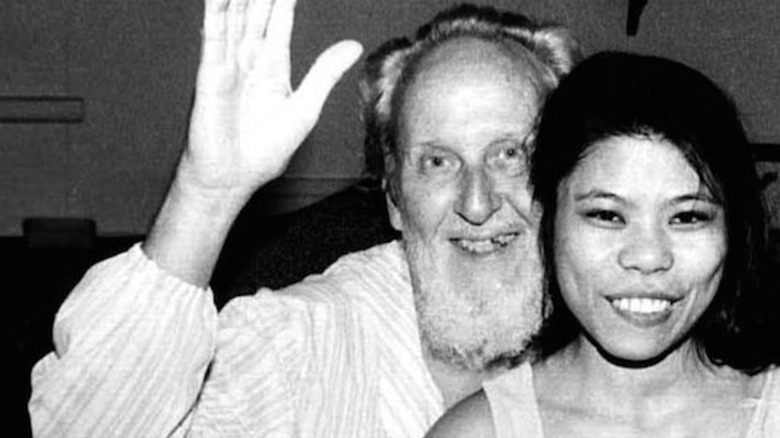
The Untold Truth Of The Children Of God Cult

'Mathematicians, Geeks' Celebrate A Rare Palindrome Day
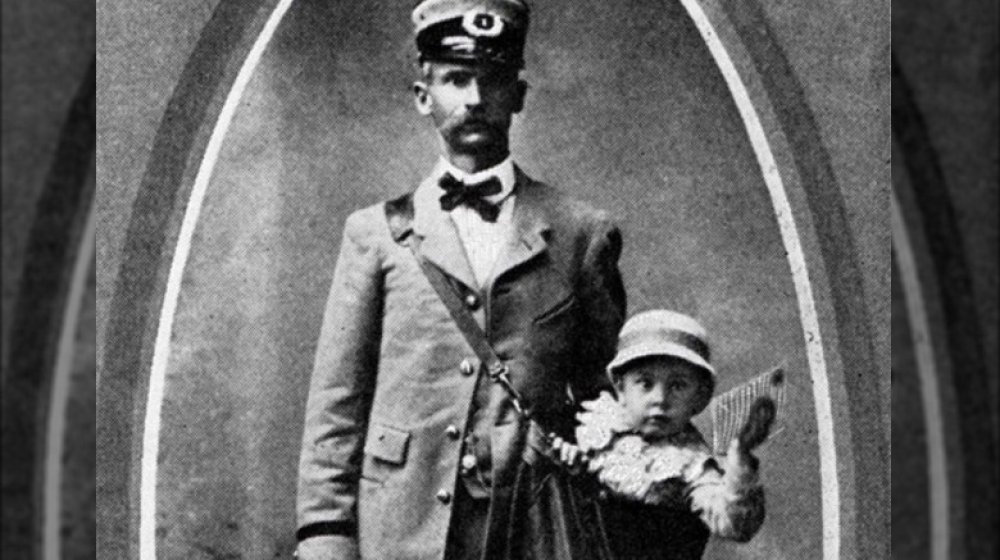
Forget The Stork: Mailmen Used To Deliver Babies As Packages

The Real Reason ToTok App Was Removed By Google And Apple

Japan Proposes Release Radioactive Fukushima Water To Sea Or Air
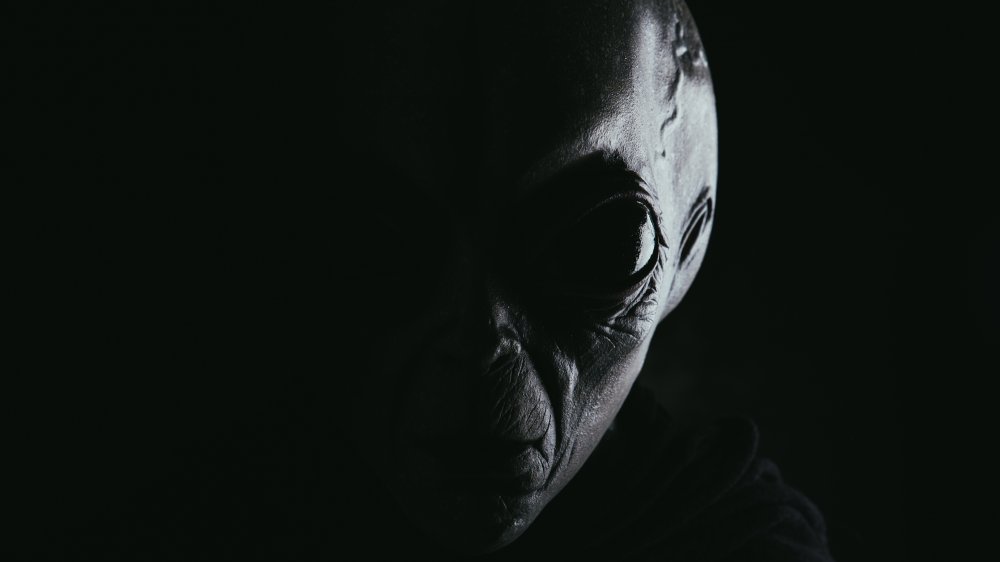
Stinky, Poisonous Molecule May Indicate Extraterrestrial Life

This Is The Most Common Crime In The US

The Most Disturbing Places People Have Found Hidden Cameras

Messed Up Things That May Have Happened In New Orleans History
